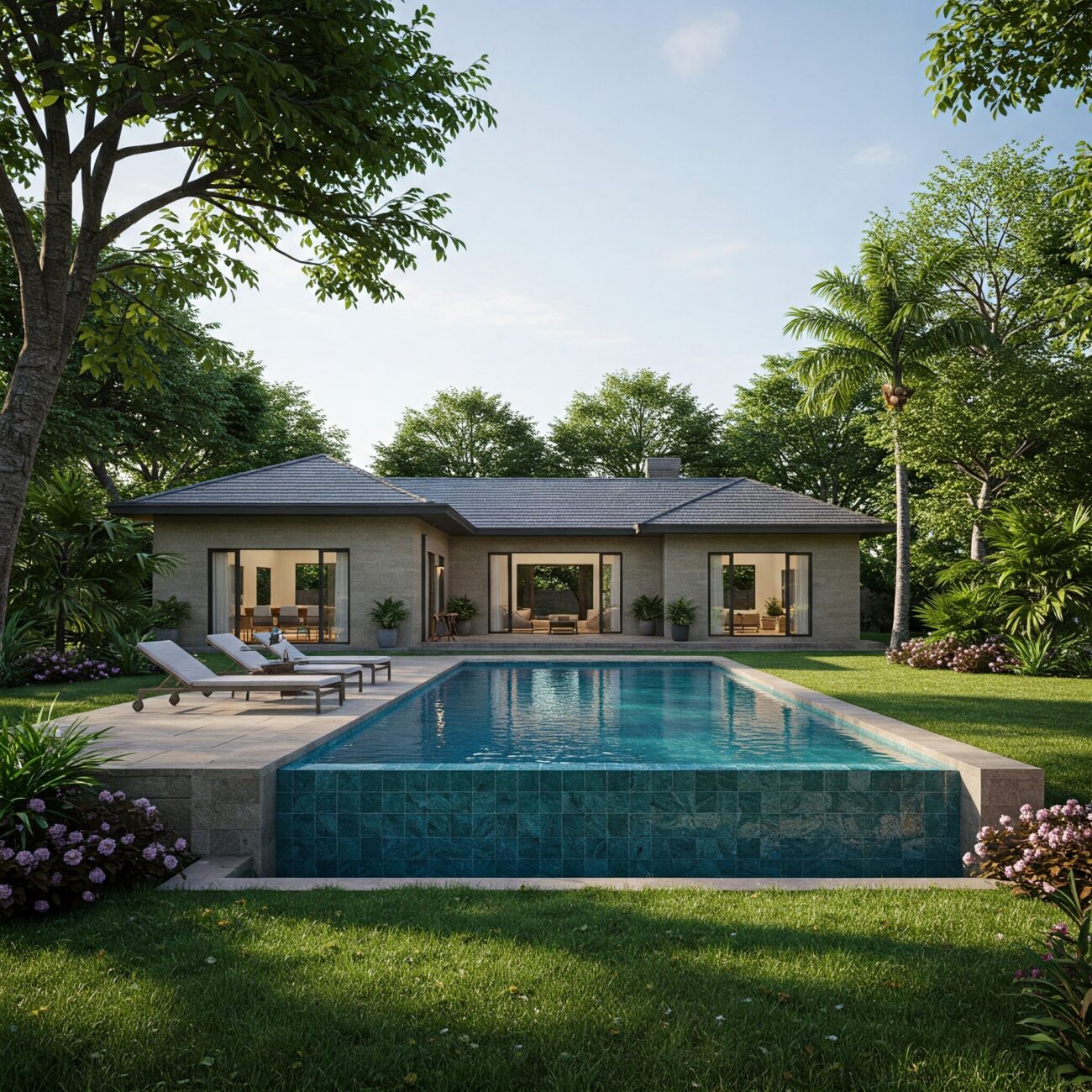Introduction
In recent years, the construction industry has witnessed groundbreaking innovations, with AI and 3D printing emerging as transformative technologies. One of the most notable projects combining these advancements is the AI-designed 3D-printed house in Torres Vedras, Portugal. Spearheaded by Litehaus, this project represents a bold step toward sustainable, efficient, and cost-effective housing solutions.
The AI-designed 3D-printed house in Torres Vedras, Portugal, showcases the potential of integrating artificial intelligence and additive manufacturing in construction. This innovative approach allows for optimized designs that maximize energy efficiency, minimize material waste, and reduce construction time. The AI algorithms used in the design process consider various factors such as local climate conditions, solar orientation, and building regulations to create a structure that is both functional and environmentally friendly. The resulting design is then brought to life through large-scale 3D printing technology, which deposits layers of specialized concrete to form the building’s walls and structural elements.
This project not only demonstrates the technical feasibility of AI-driven 3D-printed construction but also highlights its potential to address pressing global challenges in housing and sustainability. By streamlining the design and construction process, this approach can significantly reduce labor costs and construction time, making housing more affordable and accessible. Additionally, the precision of 3D printing allows for complex geometries and customized designs that would be difficult or costly to achieve through traditional construction methods. As this technology continues to evolve and scale, it has the potential to revolutionize the construction industry, offering solutions for rapid urbanization, disaster relief housing, and sustainable development in various parts of the world.
Project Overview
The house is located in Portela da Villa, just 30 minutes from Lisbon, and is part of Litehaus’s ambitious plan to construct 100 residences annually across Portugal. The development aims to address the construction sector’s substantial carbon footprint, which accounts for 42% of global emissions. By leveraging AI for design and 3D printing for construction, Litehaus seeks to redefine living spaces with simplicity, innovation, and sustainability.
Technical Details
AI Integration in Design
Artificial Intelligence played a pivotal role in the initial creative phase of the project. AI algorithms were used to design both the interior and exterior of the house, ensuring optimal aesthetics and structural integrity. The generative design process allowed for modular repetition while respecting traditional architectural language and urban context. This approach not only enhanced design efficiency but also enabled customization based on user needs.
3D Printing Technology
The construction phase utilized cutting-edge 3D printing technology to build the house’s walls. Litehaus’s proprietary system can produce up to 45 m² of walls in just 20 hours—a remarkable achievement compared to traditional methods. The walls are made from ECOMortar, a material that reduces CO₂ emissions by up to 50% while maintaining structural durability. This additive manufacturing process minimizes material waste and accelerates construction timelines.
Sustainability Features
The house embodies sustainability at its core:
- Energy Efficiency: The modular design reduces energy consumption by 67% compared to conventional methods.
- Carbon Reduction: ECOMortar significantly lowers CO₂ emissions during construction.
- Zero-Waste Housing: The project aligns with Litehaus’s commitment to zero-waste principles by optimizing material usage and recycling resources.
Construction Speed and Cost
Litehaus aims to build homes 70% faster and 20% cheaper than traditional construction methods. For example, a similar 80 m² two-bedroom house was completed using COBOD’s technology in just 18 hours. This efficiency is achieved through automated processes that reduce labor requirements and streamline assembly.
Design Philosophy
The architectural design reflects Portugal’s natural beauty while incorporating contemporary elements. Inspired by the beach ambiance near Comporta and Melides, the house features earthy tones and modular layouts. Rooms are connected by a central corridor, allowing flexibility in organization based on the terrain. This fusion of tradition and modernity exemplifies Litehaus’s vision of creating elegant yet practical living spaces.
Benefits of AI-Designed 3D-Printed Housing
- Environmental Impact: Reduced energy consumption and lower carbon emissions contribute to sustainable urban development.
- Cost Efficiency: Modular designs and automated construction processes lower production costs significantly.
- Speed: Accelerated build times enable rapid deployment of housing solutions.
- Customization: AI-driven designs allow for tailored layouts that meet diverse user needs.
- Durability: Materials like ECOMortar ensure long-lasting structures with minimal maintenance.
Conclusion
The AI-designed 3D-printed house in Portugal is more than just a technological marvel; it’s a glimpse into the future of construction. By combining innovation with sustainability, Litehaus has created a model that could revolutionize housing globally. As we move forward, projects like this will play a crucial role in addressing environmental challenges while meeting growing housing demands.
This case study highlights how technology can harmonize with tradition to create homes that are not only functional but also beautiful—a testament to human ingenuity in shaping the built environment.
Reference
- Built Offsite. (2024, February 2). Litehaus advances in AI and 3D printing for housing in Portugal. https://builtoffsite.com.au/news/litehaus-advances-in-ai-and-3d-printing-for-housing-in-portugal/
- Luxury Travel Magazine. (2024, April 18). This sustainable, 3D-printed house in Portugal is a thing of beauty. https://www.luxurytravelmag.com.au/news/this-sustainable-3d-printed-house-in-portugal-is-a-thing-of-beauty
- PR Newswire. (2024, January 23). Litehaus builds the first 3D printed Portuguese house. https://www.prnewswire.co.uk/news-releases/litehaus-builds-the-first-3d-printed-portuguese-house-302040928.html
- World Construction Network. (2024, January 24). Litehaus to build 3D-printed house in Portugal.https://www.worldconstructionnetwork.com/news/litehaus-3d-printed-house/

